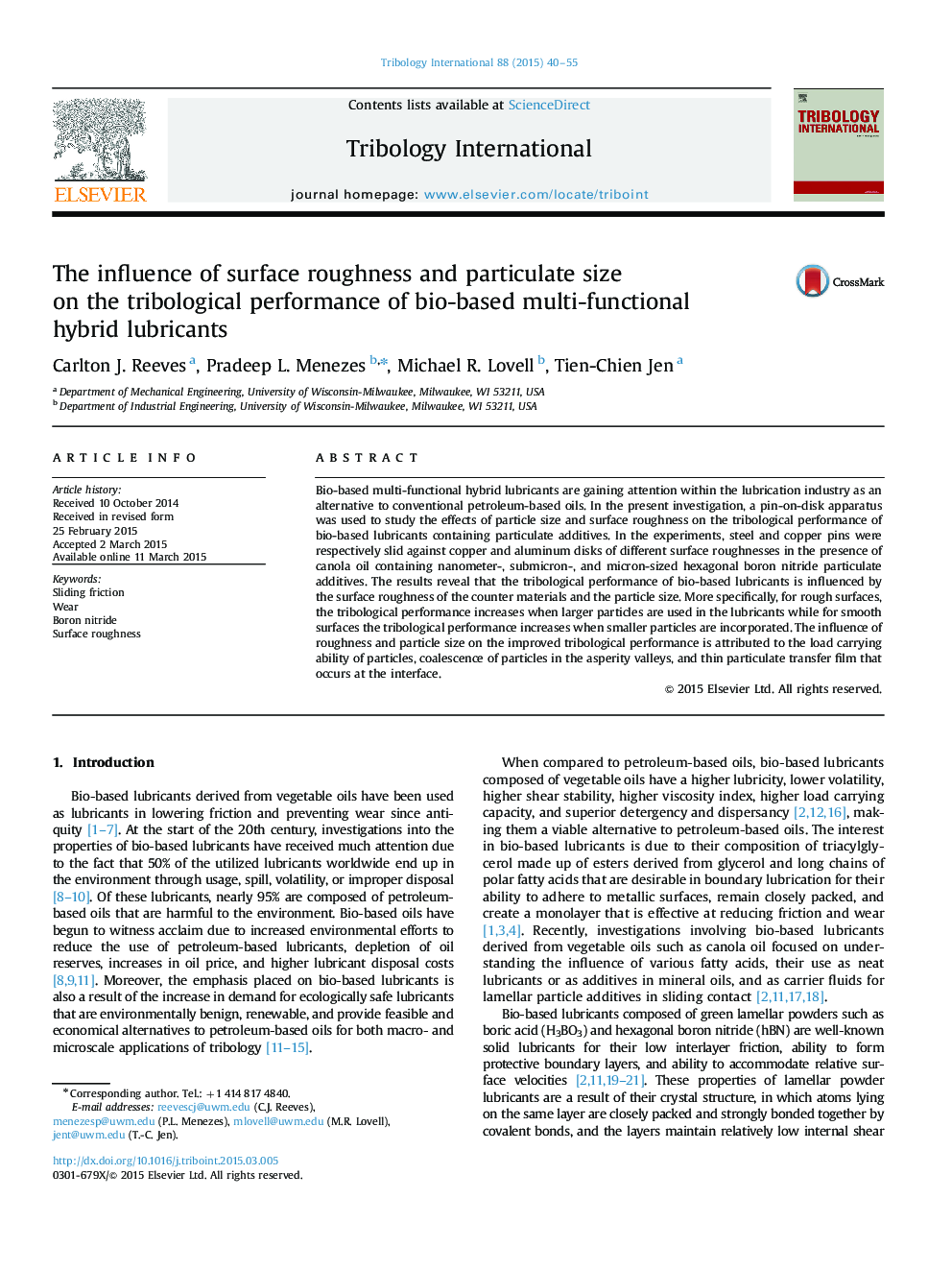| Article ID | Journal | Published Year | Pages | File Type |
|---|---|---|---|---|
| 614511 | Tribology International | 2015 | 16 Pages |
Abstract
Bio-based multi-functional hybrid lubricants are gaining attention within the lubrication industry as an alternative to conventional petroleum-based oils. In the present investigation, a pin-on-disk apparatus was used to study the effects of particle size and surface roughness on the tribological performance of bio-based lubricants containing particulate additives. In the experiments, steel and copper pins were respectively slid against copper and aluminum disks of different surface roughnesses in the presence of canola oil containing nanometer-, submicron-, and micron-sized hexagonal boron nitride particulate additives. The results reveal that the tribological performance of bio-based lubricants is influenced by the surface roughness of the counter materials and the particle size. More specifically, for rough surfaces, the tribological performance increases when larger particles are used in the lubricants while for smooth surfaces the tribological performance increases when smaller particles are incorporated. The influence of roughness and particle size on the improved tribological performance is attributed to the load carrying ability of particles, coalescence of particles in the asperity valleys, and thin particulate transfer film that occurs at the interface.
Related Topics
Physical Sciences and Engineering
Chemical Engineering
Colloid and Surface Chemistry
Authors
Carlton J. Reeves, Pradeep L. Menezes, Michael R. Lovell, Tien-Chien Jen,
